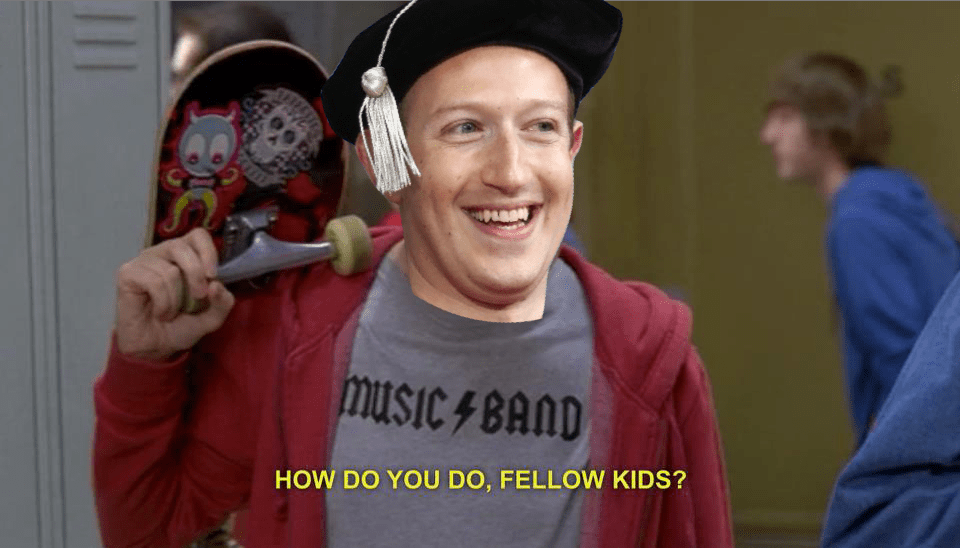As Meta tries to rekindle the flame between Facebook and socially anxious youths, the company released a blog post Wednesday titled, “Navigating your 20s with Facebook.”
© 2024 TechCrunch. All rights reserved. For personal use only.
Back in my day, Facebook was cool. Gaggles of middle schoolers trolled the local mall, where we would stop into the Apple Store, find an early MacBook Pro, and take dozens of pictures with gaudy Photo Booth filters to post on Facebook. Sometimes, other teens would forget to log out of their accounts, and we would post something like “i just pooped” before signing into our own accounts.
This isn’t the case anymore. In 2014, the Pew Research Center estimated that 71% of U.S. teens used Facebook; as of 2022, that percentage dropped to 32%, then slightly increased to 33% last year. Other studies from Edison Research have shown the same trend. Though Meta is reticent to share much demographic information about its user base, the app’s head, Tom Alison, said that there are 40 million daily active users in the U.S. and Canada between the ages of 18 and 29.
Facebook remained central to my social experiences in high school and college. If you weren’t on Facebook, you wouldn’t get invited to parties, and you wouldn’t know when any student clubs were holding meetings. In the 2010s, deleting Facebook would have been a disaster for my social life. Now if I woke up one day to find that my Facebook account had been deleted, it would be a minor inconvenience.
My experience isn’t unique. So, as Meta tries to rekindle the flame between Facebook and socially anxious youths, the company released a blog post Wednesday titled, “Navigating your 20s with Facebook.”
“Your twenties are a decade full of transitions, from graduating college, moving to new cities, starting new jobs and living on your own for the first time. It can be a hectic (and fun) decade, and Facebook is here to help,” the post says.
Do twentysomethings read the Facebook blog? (Does anyone other than journalists read the Facebook blog?) If they do, they’ll learn that you can meet new friends in groups like “NYC Brunch Squad” or “People We Meet in Book Club,” a virtual book club with almost 20,000 members. (It’s not necessarily a group for meeting fellow readers, but rather, the title is probably referencing a novel by best-selling romance writer Emily Henry.)
Meta’s blog also suggests that in your 20s, you could meet the love of your life on Facebook Dating. I don’t know about that, but then again, I’m a single twentysomething who has never used Facebook Dating, so maybe they have a point.
What Facebook does get right about Gen Z is that Facebook Marketplace is the new Craigslist. It’s trendy among young people — whether due to environmental consciousness or budget constraints — to shop secondhand. It will never be the safest decision to meet a stranger online to buy their old couch, but if you can at least view that stranger’s Facebook profile, it could be easier to verify that they’re legit. They might even have mutual friends with you, whereas on Craigslist, you’re staring in the face of a private relay email with no personal information.
Facebook marketplace is popular enough that rising Gen Z social app Fizz wants to undercut it. The anonymous, college-centric social platform recently added a marketplace to its app with this idea in mind.
“There’s that kind of stigma around, like, if I sell something on Craigslist, I might get kidnapped,” Fizz founder Teddy Solomon told TechCrunch. “And Facebook marketplace … Gen Z is not using Facebook,” he said.
As Facebook faded out of style, our social architecture shifted. I find out about concerts in my area through Instagram posts or promotional emails from local venues. My friends send invitations to birthday dinners via Partiful, an SMS-based party-planning app backed by a16z, or they just post kitschy Canva graphics to their Close Friends story.
Now 20 years old, Facebook is trying to stay relevant. According to Axios, the platform hosted an event with young creators focused on looking forward to Facebook’s next 20 years. Facebook gave creators pamphlets declaring, “We are not your mom’s Facebook.” Instead, the app described itself as “a hub for all things culturally happening in the platform’s underground.”
This feels like a stretch. Then again, Abercrombie, which reigned supreme about 20 years ago, has re-emerged into the zeitgeist, with its stock up 900%. Even Mark Zuckerberg has managed a miraculous rebrand. Maybe one day, Facebook will be cool again, too.

Leave a Reply